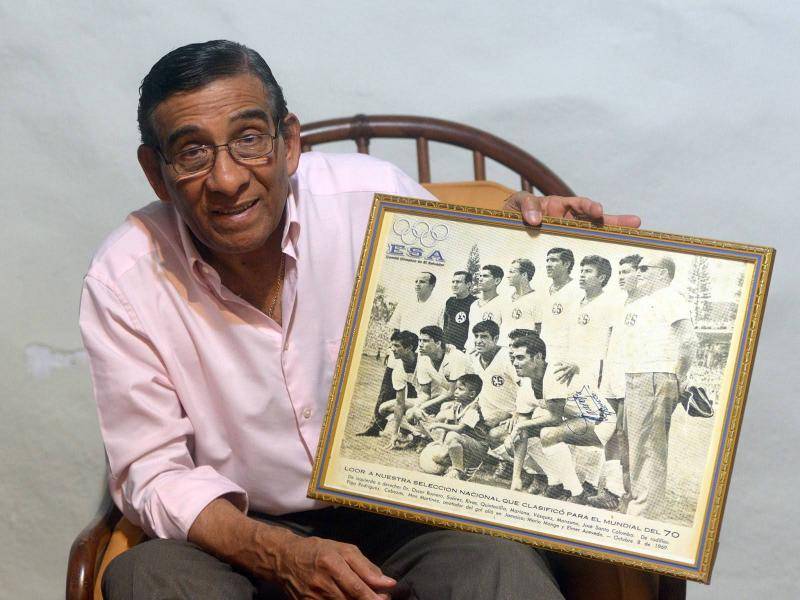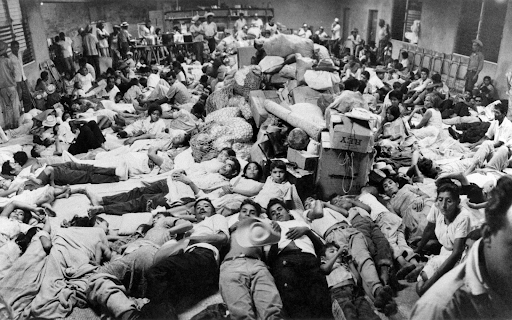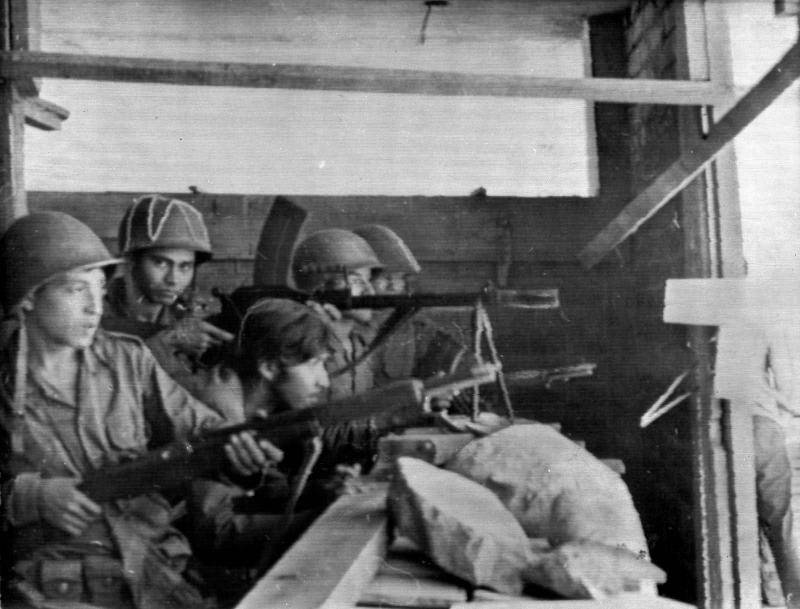
In our review of the “5 Politically-Charged Football Matches that Turned into Madness”, we quite purposefully neglected to mention one particularly noteworthy series of football matches that resulted in two Central American (not Mexican) nations, El Salvador and Honduras, going to war with each other—as in an actual war with tanks, boats, and planes.
1969 El Salvador v Honduras
The Backstory
It was the middle of 1969, and while the rest of the western hemisphere was busy turning the Summer of Love into a muddy field of porta-potties at Woodstock, El Salvador and Honduras were engaged in a bit of tit-for-tat like a pair of cartoon characters.
El Salvador and Honduras are two neighbouring countries in Central America (near Mexico) that both endured conquistadores, gained independence from Spain on the same day, and were still largely agrarian economies by the time they faced each other on the pitch in June 1969 to qualify for the 1970 FIFA World Cup (which was to be hosted by Mexico).

The First Match (8th June 1969)
Honduras was first to host and fans made full use of their home-field advantage by (allegedly) taunting the Salvadoran national team outside their hotel. The psychological warfare seemed to work, as Honduras won by keeping the sleep-deprived Salvadoran lineup to a goalless draw before scoring one goal in the final minute of the match.
The Second Match (15th June 1969)
With the shoe on the other foot, El Salvador took the opportunity presented in the second leg of the qualifying matchup to return the favour and up the ante. The Hondoran national team endured the same quality of restless sleep that was afforded to the Salvadorans, with the additional slights of flag desecration to humiliate the visiting team and disturbing propaganda (with the apparent suicide of Amelia Bolaños, a Salvadoran fan) to whip the home crowd into a frenzy.
By the end of the match, El Salvador trounced the visiting neighbour with a score of 3-0, and there were open hostilities in the stands. The Hondurans had to hastily depart the stadium under a rain of projectiles—but the two teams still had the same number of points and a play-off was needed to settle the question of who would be going into the final round of World Cup qualification.
The Third Match (26th June 1969)
Being the smaller and more densely populated of the two nations, El Salvador’s citizens had been migrating to neighbouring Honduras for generations, as people often do when in search of survival. Honduras, being the literal definition of a banana republic, had recently enacted land reforms that would have land taken from the Salvadoran migrants and redistributed to native-born Hondurans.
Following the second match, Salvadoran settlers in Honduras reportedly endured a kind of mistreatment that bordered on genocide and eventually became even more disadvantaged migrants in their own country of origin.

Apparently as a result of the persecution suffered by its citizens in Honduras, El Salvador cut diplomatic ties with its neighbour on the day of the playoff match in Mexico. Things just got worse once the third match got underway, and what seemed to be yet another draw became, in extra time, a win for El Salvador.
The Aftermath
Following this upset, even more violence was heaped onto Salvadorans living in Honduras, and facing an increasingly untenable refugee crisis within its own borders, El Salvador declared war on its neighbour just over a fortnight later.

Using antiquated leftovers from the Second World War, El Salvador and Honduras went after each other’s infrastructure like old enemies. But even with ammunition and supplies being provided by yet another neighbour, Nicaragua, and despite having a superior air force, Honduras’ capital city of Tegucigalpa was within striking distance of the Salvadoran army.

Honduras appealed for intervention by the OAS (Organization of American States)—it’s a bit like the UEFA, but for anything not football-related happening in North and South America. Under the threat of being put into a metaphorical time-out like North Korea, El Salvador eventually agreed to a ceasefire and withdrew their forces with the guarantee of safety for its citizens in Honduras and a demand for reparations that remains unacknowledged.
The human cost of the conflict came up to thousands dead, including both military personnel and civilians, hundreds of thousands displaced, and peace in the region delayed for another generation.
El Salvador succeeded in their first attempt at qualifying for the FIFA World Cup, but went on to lose their first three games in 1970. The Salvadoran national team would qualify for the World Cup for the second (and final) time, in 1982, where they scored their first World Cup goal—but left the competition in resounding defeat against Hungary (10-1).
YouTube’s OverSimplified has a pretty concise summary of the events that transpired between the two, clearly football-mad, nations here.
Read more: 5 Politically-Charged Football Matches that Turned into Madness.

